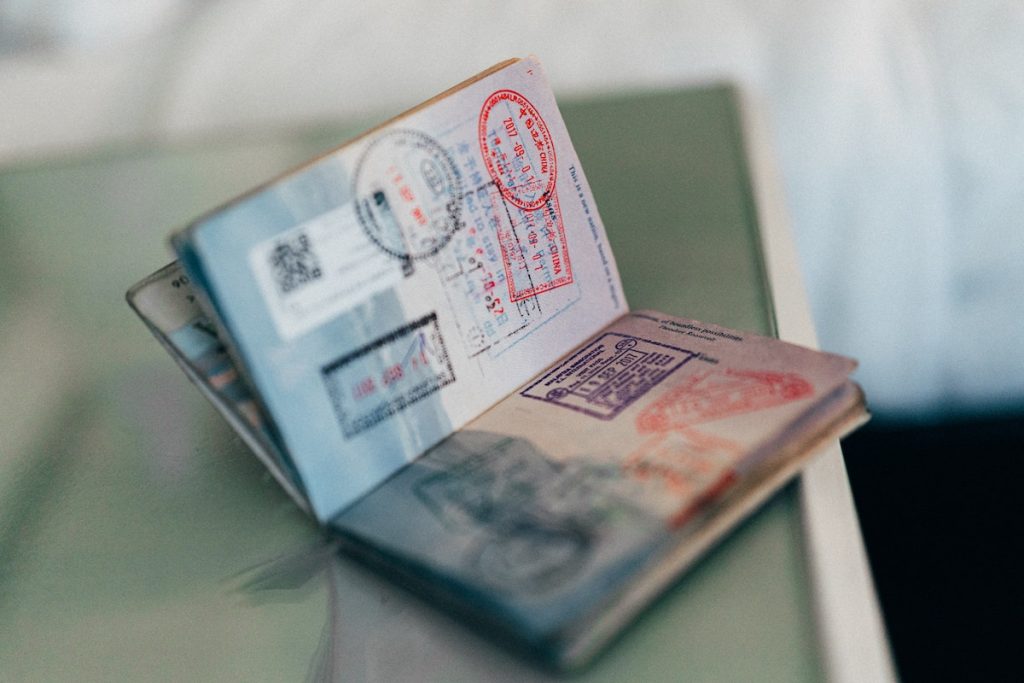

Visa guides: understanding the rules for overstaying your visa and consequences is crucial for international travelers. A misstep regarding visa regulations can lead to unforeseen complications, from hefty fines to restrictions on future travel. This guide delves into the nuances of visa overstaying, covering potential penalties, and provides practical strategies to avoid them.
Understanding Visa Requirements
Visa Types and Conditions
Different countries have different visa requirements. These requirements vary greatly based on the intended purpose of the trip, duration, and nationality of the traveler. A tourist visa, for example, often has more restrictive time limits than a business visa. Therefore, it’s essential to carefully study the specific requirements outlined by the country’s immigration authorities. For instance, a tourist visa might only permit a stay of 90 days, whereas a business visa might allow for a longer period of stay depending on the terms and conditions.
Common Visa Mistakes
Many people overlook crucial details in their visa applications, leading to potential overstays. For example, not confirming the validity of your passport, ignoring travel timelines, and not keeping careful records of your travel dates are all commonplace mistakes. These mistakes can easily lead to complications with immigration officials and potential penalties. In addition, a lack of understanding of immigration laws can also lead to unexpected consequences.
Consequences of Overstaying
Fines and Penalties
Overstaying a visa can result in substantial fines. The amount of the fine generally increases with the duration of the overstay. Immigration authorities in different countries have established guidelines regarding fines and penalties, which often escalate based on repeated offenses. In some cases, the penalties for overstaying can be quite significant and have substantial impacts on your future travel plans.
Travel Restrictions
Overstaying a visa can lead to travel restrictions in the future. The severity of these restrictions depends on the country’s immigration policies and the specific circumstances. A common consequence involves banning future entry into the country in question, or even other countries depending on the immigration authority’s discretion.
Revoking Previous Visas
In some situations, overstaying a visa can lead to the revocation of previously issued visas. This can impact future travel to not only the country in question, but also to other countries if immigration authorities take punitive action.
Preventing Visa Overstays
Thoroughly Reviewing Your Visa
Before traveling, meticulously review the terms and conditions of your visa. Pay close attention to the validity dates, allowed duration of stay, and any specific restrictions. Many people have experienced issues due to a lack of careful review, leading to fines and penalties.
Maintaining Records
Keep accurate records of your travel dates, including arrival and departure stamps in your passport. This record-keeping serves as a vital document for verifying your authorized stay.
Understanding Travel Timelines
Understanding travel timelines is critical. Consider factors such as airport transfer time and possible delays during travel. Consider also the specific time requirements or procedures in the country you are visiting. Failure to adequately account for these elements can cause confusion.
Seeking Professional Advice
Consulting with an Immigration Lawyer
Seeking legal guidance from an immigration lawyer is highly recommended for travelers with complex visa situations or those concerned about the potential consequences of overstaying a visa. They can offer personalized advice based on individual circumstances.
Utilizing Visa Consultants
Utilizing reputable visa consultants can also be valuable for those needing assistance navigating the visa application process. They can guide you through the steps, helping you avoid potential mistakes and overstays.
Embassy and Consulate Assistance
If you need clarification on visa requirements or have questions about your visa status, contacting the relevant embassy or consulate can provide further guidance and avoid any unnecessary complications.
Case Studies
Case Study 1: A researcher who overstayed their visa by a few days due to unforeseen research opportunities. This research opportunity significantly extended their intended time of stay. In this case, the penalties could have been more severe if not for seeking early advice from a lawyer. This highlight the value of consulting with professionals in case of unexpected delays or extensions.
Case Study 2: A tourist who did not thoroughly read the visa terms and conditions. This tourist assumed their stay would be automatically extended. This highlights the importance of thorough reviews of visa terms before travel.
Case Study 3: A student who failed to understand the implications of failing to meet academic deadlines, which extended their time of stay. This case exemplifies the importance of careful consideration of all relevant timeframes and scheduling.
Case Study 4: A businessperson who inadvertently overstayed their visa due to a work-related extension, despite the visa not allowing it. This highlights the importance of adhering to the rules of the country.
Case Study 5: A family who did not understand that visa rules could be affected by their dependents. This case shows the importance of understanding how visa conditions can be influenced by family members.
FAQ
What are the most common reasons people overstay their visas?
Many people overstay their visas due to unforeseen circumstances, such as job opportunities that extend beyond the visa validity or family emergencies. A significant portion, unfortunately, overstay due to a lack of awareness or understanding of visa conditions. Some may also be unaware of the consequences until it’s too late. In some cases, people may deliberately overstay their visa, often to pursue employment without proper authorization. Ultimately, the reasons vary greatly, but proper understanding of visa conditions can help avoid these issues.
What are the potential penalties for overstaying a visa?
The penalties for overstaying a visa can vary significantly depending on the country and the specific circumstances. It often begins with fines, which can escalate in severity based on the duration of the overstay. Repeated overstays can lead to more severe penalties, including a ban on future travel to the specific country or even broader restrictions. Furthermore, immigration authorities might take action to revoke any previously issued visas, affecting future travel opportunities, including any applications for visas from other countries. It’s essential to understand that each case is different, so always seek professional guidance for personalized advice.
How can I avoid overstaying my visa?
Planning and diligent record-keeping are vital for avoiding visa overstays. This includes carefully reviewing your visa’s terms and conditions, noting the exact dates of your allowed stay, and keeping track of the visa validity dates to avoid any discrepancies. Tracking your travel dates, such as departure and arrival stamps, will help you accurately track your stay, allowing you to adjust plans if necessary. It is also vital to keep copies of all important documents, such as visa applications, travel tickets, and accommodation records. This will ensure you can quickly reference the documents if needed. Finally, if you have any questions or concerns about your visa status, consulting with an immigration lawyer or official from the specific country’s embassy can help provide guidance tailored to your situation.
Understanding the rules around overstaying a visa is crucial for international travelers. This guide highlighted the potential consequences, from fines and penalties to the implications for future travel. If you’re unsure about your visa status or concerned about potential overstays, consulting with an immigration lawyer or a reputable visa consultant is highly recommended. Remember, proactive measures and adherence to the rules are key to a smooth and legal travel experience. Taking these steps ensures you avoid any unpleasant surprises and maintain a positive relationship with immigration authorities.